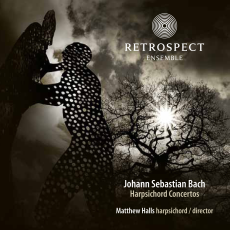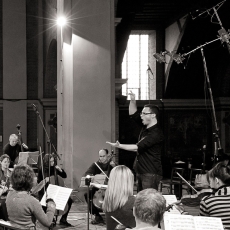Retrospect Ensemble - Bach: Harpsichord Concertos - BBC Music Magazine
Imagine dropping in to your local café one wet Friday evening and discovering five string instruments and a magnificent new harpsichord, all of which were provided by the management. Bach's Harpsichord Concertos were written for such a setting: Gottfried Zimmermann's coffee house in Leipzig's Katharinenstrasse. Zimmermann himself bought the harpsichord specifically to support the weekly concerts by the Collegium Musicum, a largely student ensemble, which Bach had taken over from Telemann in 1729. Performances took place in the coffee house during wet weather, and outside in the garden of his house in Windmulgasse when it was fine. Matthew Halls seems to have conjured up a clear picture of this original setting, and it's remarkable how many issues are resolved when performers take the indoor Leipzeg venue into account. The choice of one-to-a-part strings, while not confirmed by hard contemporary evidence, would avoid crowding out the coffee-drinking clientele. But such lean forces also create transparent textures, balancing perfectly with the harpsichord, elevated by Bach from its continuo role to soloist. A copy by Ian tucker of a two-manual Flemish-style instrument proves ideal for this repertoire. Its quieter registrations cast it as a continuo instrument within the strings in the full sections, while it steps forward in full voice as a wholly engaging soloist. The recorded sound is intimate, ensuring that the harpsichord's bright overtones are not dulled by distance, and surround-sound creates a wonderful sense of three-dimensional space. A Cambridge church adds bloom to the sound.
In the Concerto in D minor, strings and harpsichord alternately step forward and retreat in dextrous interplay, with every contrapuntal detail crystal clear. The vibrant energy of the last movement displays the striking tonal variety of the harpsichord, and Halls draws a magical legato from the resonant instrument in the slow movement of the G minor Concerto. Recorders colour the Concerto in F, transcribed from Bradenburg Concerto No. 4 of 20 years earlier. After the sheer high spirits of the opening of the Concerto in A, the Larghetto is beautifully handled. Hall's sparkling articulation, even at quite moderate tempos, generates enormous exuberance in the final allegro. All in all, an irresistible excuse to linger over kaffee und kuchen.

